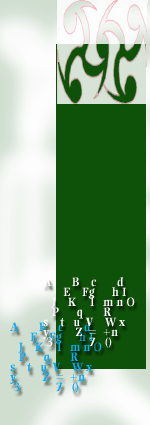|
"Ah homeward bound I go"
Ah
homeward bound I go! Why not go home, seeing that my field and garden with weeds are overgrown? Myself have made my soul serf
to my body: why have vain regrets and morn alone?
Fret not over bygones and the forward journey take. Only a short
distance have I gone astray, and I know today I am right, if yesterday was a complete mistake.
Lightly floats and
drifts the boat, and gently flows and flaps my gown. I inquire the road of a wayfarer, and sulk at the dimness of the dawn.
Then when I catch sight of my old roofs, joy will my steps quicken. Servants will be there to bid me welcome, and
waiting at the door are the greeting children.
Gone to seed, perhaps, are my garden paths, but there will still be
the chrysanthemums and the pine! I shall lead the youngest boy in by the hand, and on the table there stands a cup full of
wine!
Holding the pot and cup I give myself a drink, happy to see in the courtyard the hanging bough. I lean upon
the southern window with an immense satisfaction, and note that the little place is cosy enough to walk around.
The
garden grows more familiar and interesting with the daily walks. What if no one ever knocks at the always closed door! Carrying
a cane I wander at peace, and now and then look aloft to gaze at the blue above.
There the clouds idle away from their
mountain recesses without any intent or purpose, and birds, when tired of their wandering flights, will think of home. Darkly
then fall the shadows and, ready to come home, I yet fondle
the lonely pines and loiter around.
Ah, homeward bound
I go! Let me from now on learn to live alone! The world and I are not made for one another, and why drive round like one looking
for what he has not found?
Content shall I be with conversations with my own kin, and there will be music and books
to while away the hours. The farmers will come and tell me that spring is here and there will be work to do at the western
farm.
Some order covered wagons; some row in small boats. Sometimes we explore quiet, unknown ponds, and sometimes
we climb over steep, rugged mountains.
There the trees, happy of heart, grow marvelously green, and spring water gushes
forth with a gurgling sound. I admire how things grow and prosper according to their seasons, and feel that thus, too, shall
my life go its
round.
Enough! How long yet shall I this mortal shape keep? Why not take life as it comes, and
why hustle and bustle like one on an errand bound?
Wealth and power are not my ambitions, and unattainable is the
abode of the gods! I would go forth alone on a bright morning, or perhaps, planting my cane, begin to pluck the weeds and
till the ground.
Or I would compose a poem beside a clear stream, or perhaps go up Tungkao and make a long-drawn call
on the top of the hill. So would I be content to live and die, and without questionings of the heart, gladly accept Heaven's
will.
T'ao Yuanming
November 905 AD
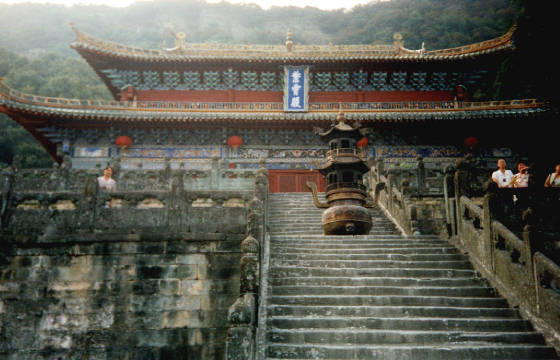
|
| The Purple Cloud Temple |

|
| The Path Of The Tao |
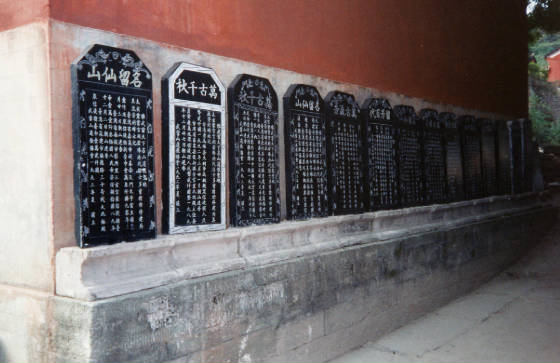
|
| Enlightened Masters of the Tao |
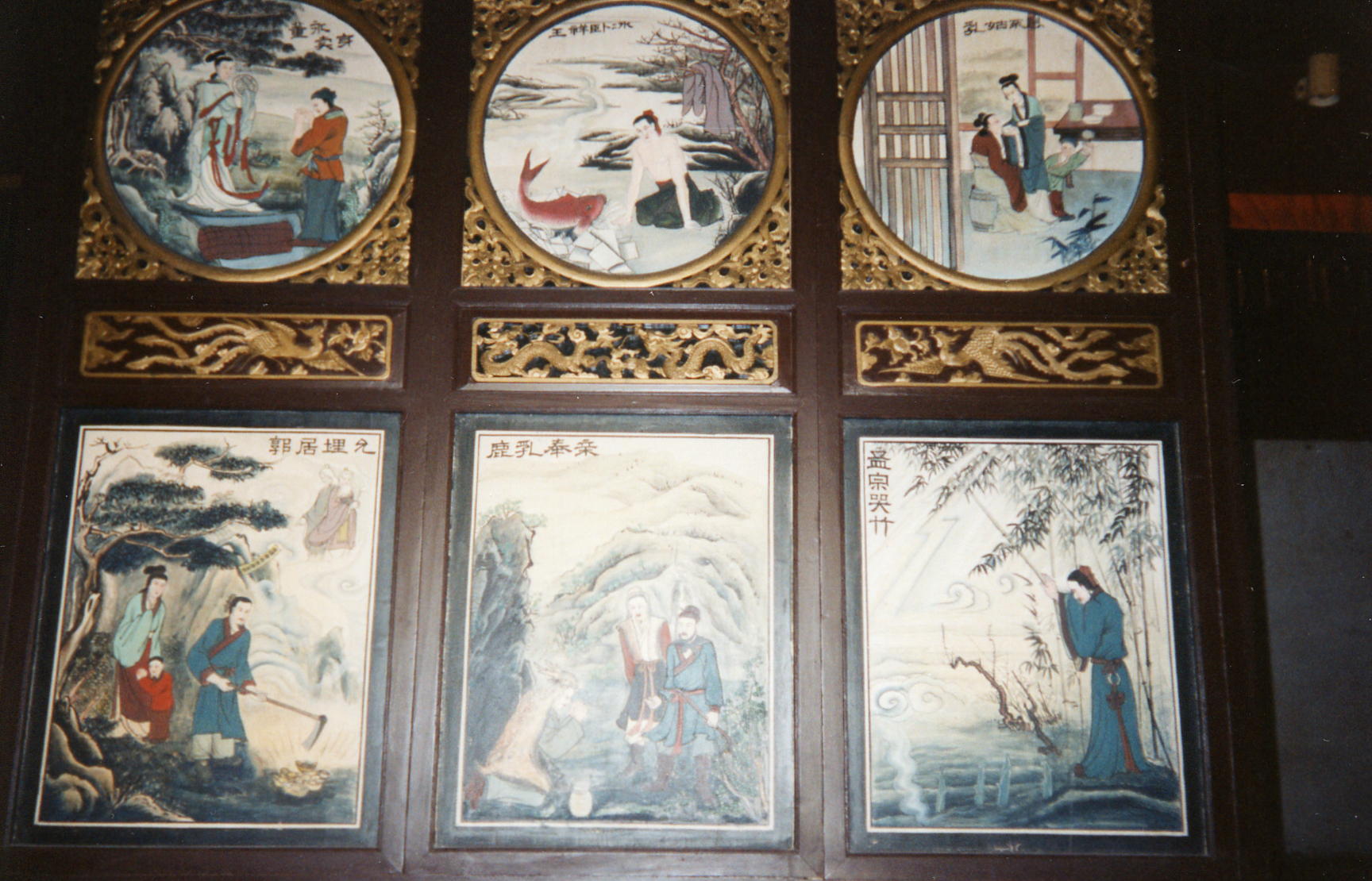
|
| Temple Picture Restoration |
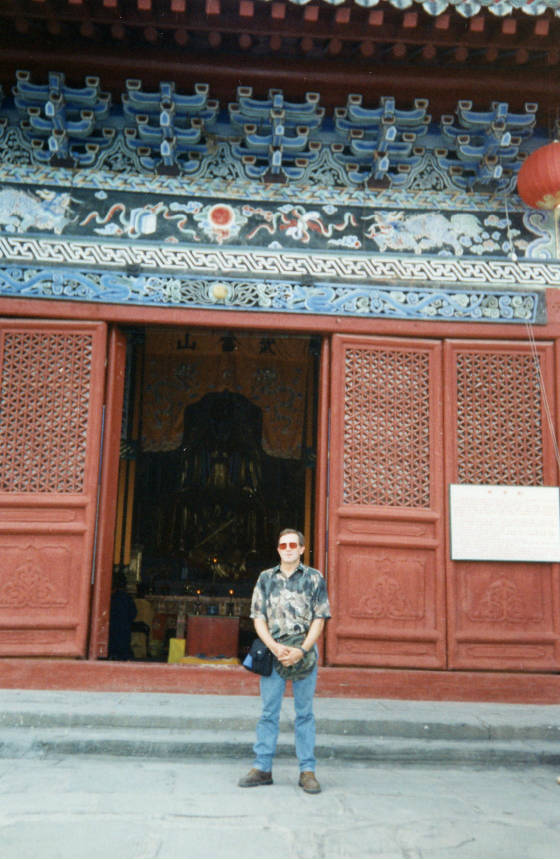
|
| At the temple door |
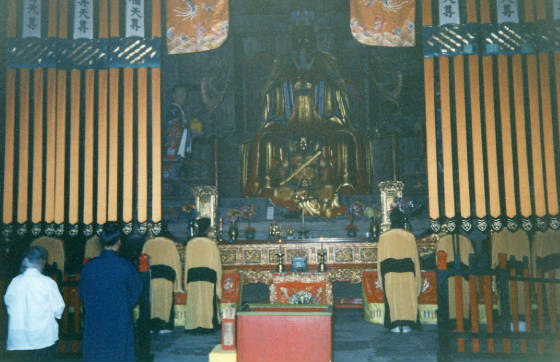
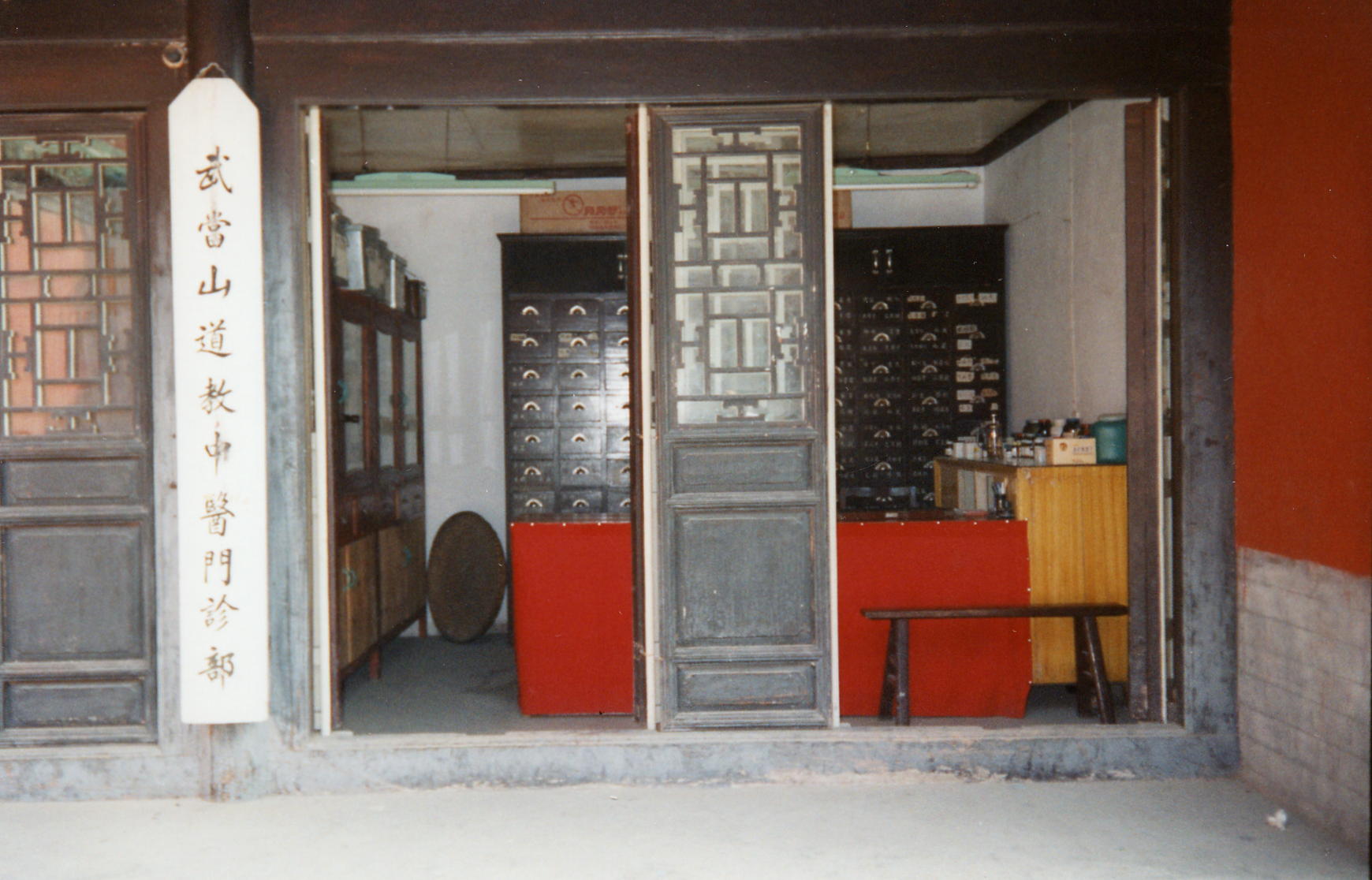
|
| Chinese Taoist Medicine |
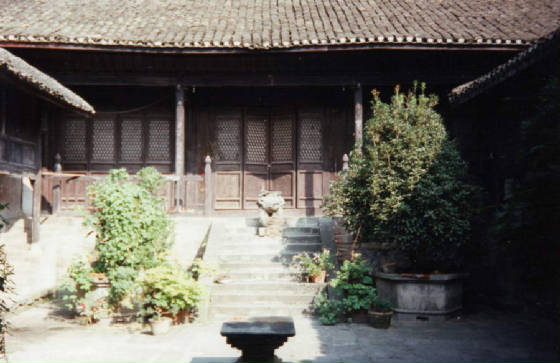
|
| Taoist Monks Home |
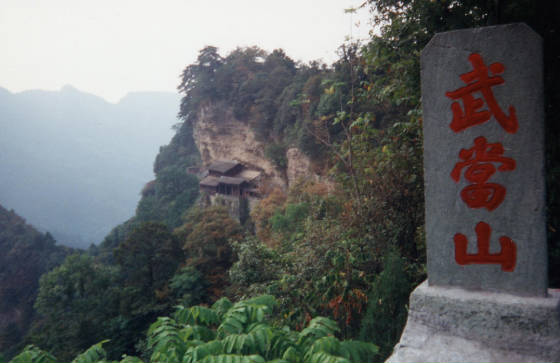
|
| Approaching the South Cliff Temple |
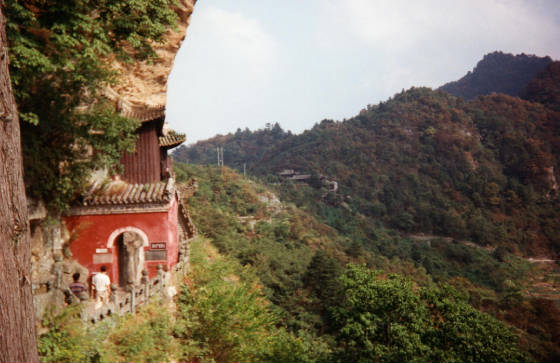
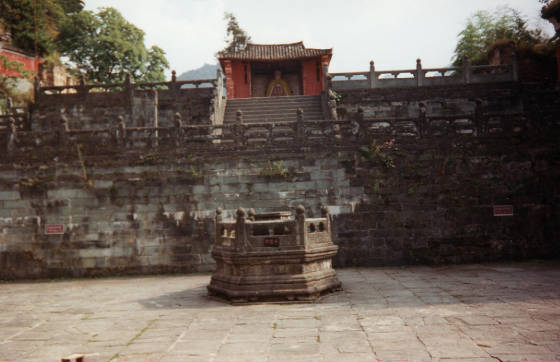
|
| Well of Souls before the Golden Emperor |
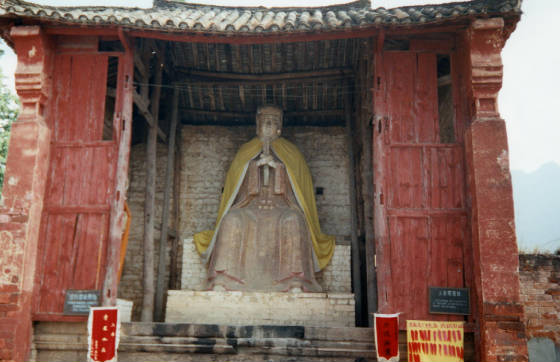
|
| Yellow or Golden Emperor |
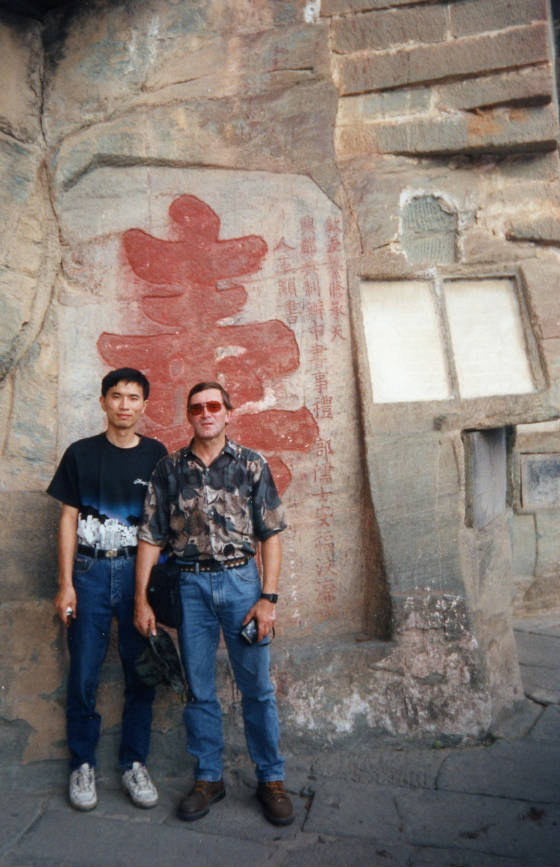
|
| Two travelers: YongQing and I |
Seeking; we shall not find. Insight is
not viewed ahead in the mist as a rustic pine along a foggy sea cliff path, but rather simply flows as a past remembrance to
those who stay on the path. Seeking for self is the great barrier blinding us to see the void, the mother of all.
In Western terms frugality is economy in all things.
The Chinese say: He who knows what is enough - will always have enough. He who does not know what is enough will
loose even himself. Frugality therefore is one of the three great treasures of Tao which guides
us along the path as a light in the darkness along a cliff. Frugality is the gateway to insight of our true nature.
A monk brought an apprentice to the homes of
two men who were dying. The first, lived in a palace filled with everything one could desire, many servants
and great wealth. After he died they went to the home of the second man who lived in a small hut with a dirt floor
next to the river. Once he also passed away the same day, they commenced their return journey to the monastery.
The monk inquired of the boy "What have you
learned of frugality?" The boy replied "When the second man died he just peacefully slipped away. When the first
man died it was awful. He was crying and afraid - and he had everything!!" The monk shook his head and said
"It was the first man who had nothing, not even himself.
Ashamed of his lack of understanding and knowing
he had been chosen to accompany the monk for a purpose the boy dropped his head and they continued along
the path homeward.
Finally the boy said "I do not understand master!" to
which the monk smiled and stopping to rest replied "Each man was given exactly the same opportunities. The first man
chose to acquire possessions for himself. When he realized he was dying he understood someone
else would acquire them. He was ashamed and afraid and did not know himself and feared the unknown!
The second man; given the same opportunities each
time saw another in greater need and helped them. By so doing little by little he nourished his inner
nature. When his time to pass arrived he knew himself and was happy with what he had done and did not fear
where he was going.
Being Frugal is a great treasure which affords us
the opportunity to be generous and provides the gift of insight to our true nature.
Learning to unlearn does not mean gaining understanding.
Those who seek to restore their original condition through thinking; seek The Way through intelligence. None
of us understands even the simplicity of the small.
The wise man does not seek to remain silent, but
neither attempts expression of the essence. Who can define the smell of a rose or the sound
of a bird? Each of us must simply choose to follow the path we are provided. Each path is different; and
each will provide individual insight as we journey upon it. We cannot see insight come into view; we must gain
insight from what we have viewed and retained as a memory.
The greatest wisdom is learning the most difficult
task we have is keeping to the path. Philosophical argument or accumulation of knowledge will not sink roots in
tranquility nor speed our journey. Keep plain and joyful without seeking attainment of the will.
Let the will simply become the path. Greet one another as travelers beside a stream; perhaps even in
opposite directions who pause to refresh themselves and enjoy the moment!!
|
